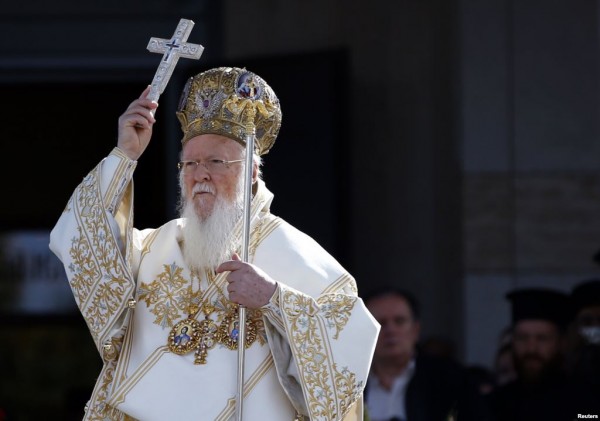Distinguished members of the Council of Churches,
Beloved colleagues and friends,
It is a great joy always to meet with colleagues and coworkers in the ecumenical field, who are laboring to serve the people of God in a united manner, faithful to the teachings and commandments of the Lord.
Of course, every Christian is called to follow the way of Christ and respond to the needs of “the least of our brothers and sisters,” in whom Christ is manifested. Nevertheless, when our Churches humbly work together, the blessing is always more fruitful and more tangible. For, the truth is that, as individual communities, we are “fragile sticks,” to adopt the words of the Prophet Ezekiel (chapter 37, verses 15-28). Together, however, we can become one people under one God, neither divided among ourselves nor defiling the covenant of the Lord.
This means that our Churches are called to a common ministry and mission, proclaiming and promoting a worldview in which God’s authority – the authority of the kingdom – guides our ways and determines our actions.
If, we are to submit to the authority of God, then we must be authentic and prophetic in our criticism of the world’s poverty and suffering, as well as the world’s greed and consumerism. We must remember and remind our faithful that “the earth and all the fullness thereof” belongs to the Lord (cf. Psalm 24.1), that the world’s resources must always be oriented toward our brothers and sisters. We must recall the Lord’s beatitude, according to which “the meek shall inherit the earth” (Matt. 5.5). For the meek person is the one who reverses the world’s attitudes to power and possessions; otherwise, the world becomes a place of division and violence. Meekness is ultimately a way of caring, a way of sharing. And it stands as a contrast and correction to the division and desecration that we have brought into God’s creation.
Beloved brothers and sisters, the unity that we seek is a gift from above, which we must pursue persistently as well as patiently; it is not something that depends solely on us, but primarily on God’s judgment and kairos. Nevertheless, this sacred gift of unity is something that also demands of us radical conversion and re-orientation so that we may turn humbly toward our common roots in the Apostolic Church and the communion of saints, but also so that we may entrust ourselves and submit to God’s heavenly kingdom and authority. Finally, however, unity obliges us to a common purpose in this age as we expect the age-to-come; for it commits us to a sacred ministry and mission in realizing the kingdom, as we declare in the Lord’s prayer, “on earth as in heaven.” Such is the sacred gift that we have inherited, the sacred gift that we are called to minister together.
May God bless you in your common service to God’s world and God’s people.

















